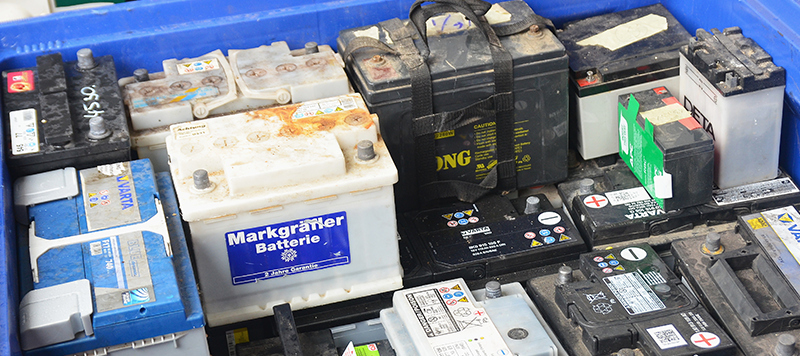Matignon has announced its willingness to provide €30 million in support for two automotive battery recycling projects, led by the Veolia-Solvay-Renault alliance on the one hand, and Mecaware-Verkor on the other, as part of the France 2030 investment plan.
The two French groups, which are Renault with Veolia (waste and water treatment) and the Belgian chemist Solvay, plan to build a battery recycling unit with a capacity of 10,000 tons per year in 2023, followed by a second deployment “three times larger in 2028,” said the Ministry of Industry in a statement.
The other project comes from the Lyon-based recycler Mecaware and the Grenoble-based battery manufacturer Verkor, and aims to build an “industrial unit for recycling production waste” from batteries and reusing the metals.
“Support for these two electric battery recycling projects illustrates the government’s determination to control the value chains of the energy transition,” said Agnès Pannier-Runacher, Minister of Energy Transition, quoted in the release.
“This issue is doubly strategic: it will allow us to move towards an increasingly circular economy and therefore with a controlled environmental footprint, but also to capture the critical metals essential to the energy transition,” she added.
France has set up an investment plan “France 2030” and this plan is endowed with 30 billion euros, including 950 million for projects for the production and recycling of so-called critical materials.
100 million had been allocated for projects to produce and recycle these materials to five companies: Imerys (lithium extraction in the Allier region), Viridian (lithium refining in the Bas-Rhin region), Eramet (Li-ion battery recycling), Sanou Koura (extraction of metals from electronic waste in the Ardennes region) and WEEECycling (extraction of metals from electronic waste in the Seine-Maritime region).
Earlier this year, the French mining group Eramet announced the conclusion of an exclusive memorandum of understanding with Électricité de Strasbourg (ÉS), a subsidiary of EDF, to study the development of a geothermal lithium production of 10,000 tons per year by 2030, which could be used to manufacture electric batteries.
Yesterday, the Minister Delegate in charge of Industry Roland Lescure estimated that local production would allow producing 250,000 batteries per year.
“Here, we write the future,” he said, referring to “an industrial revolution of the 21st century in progress.



Comment here